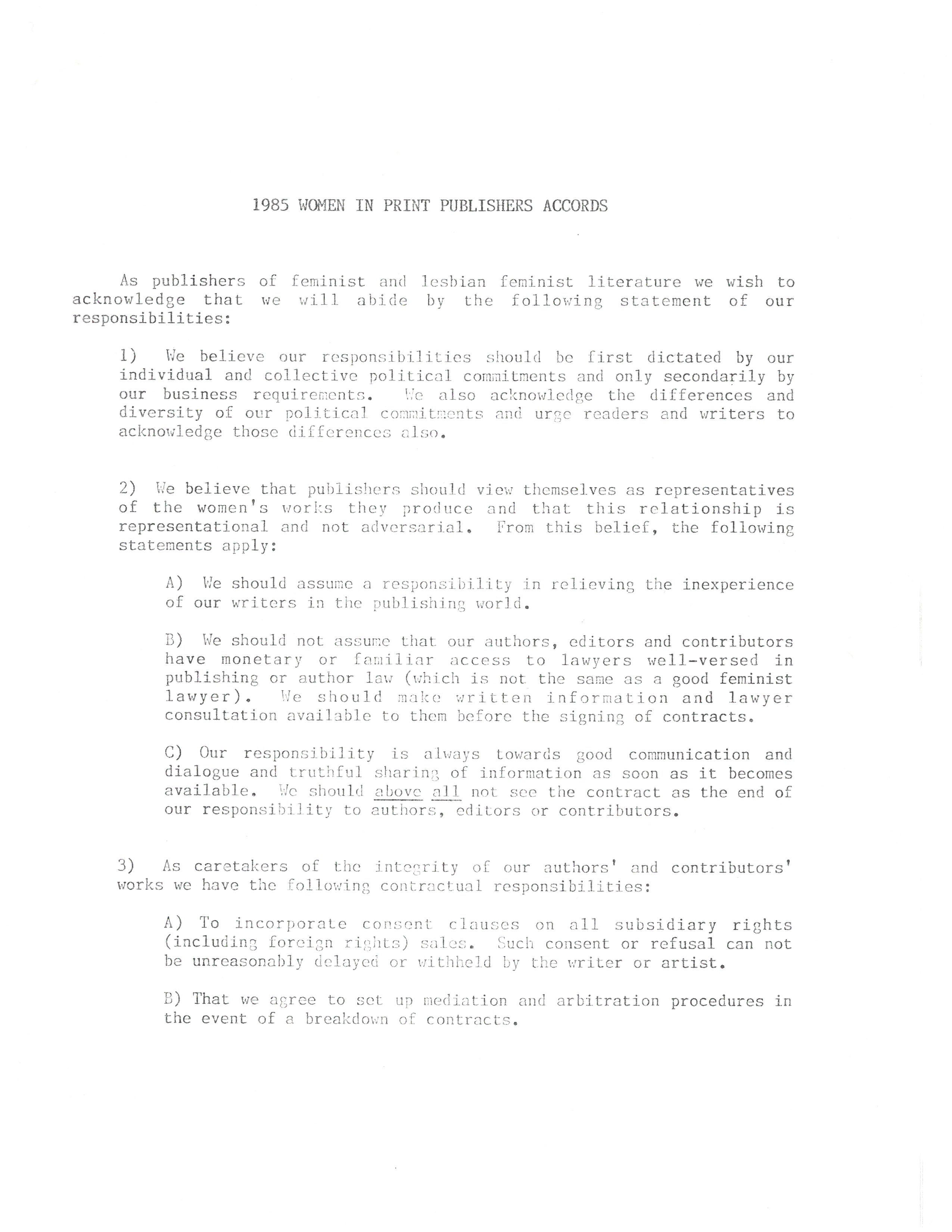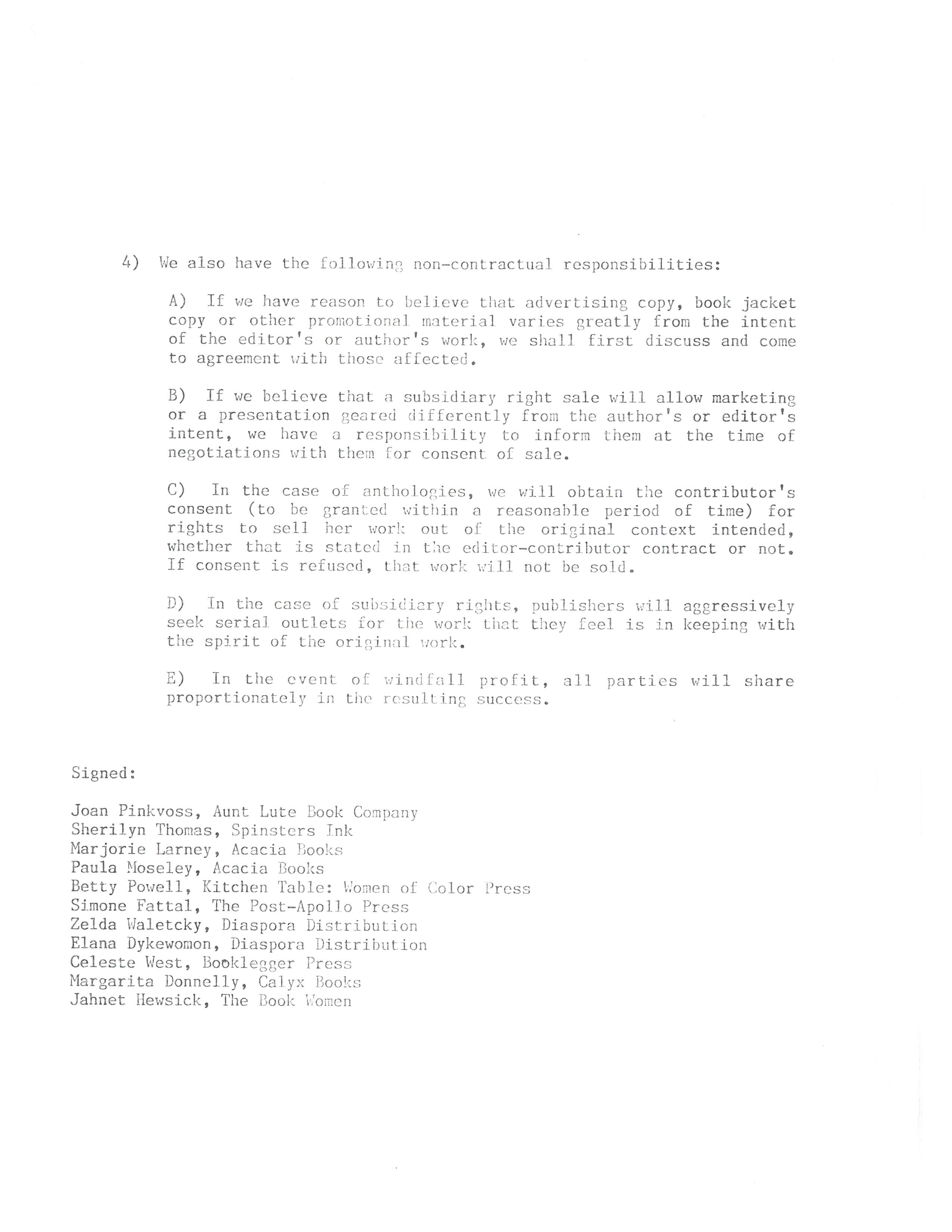Transcription:
1985 Women in Print Publishers Accords
As publishers of feminist and lesbian feminist literature we wish to acknowledge that we will abide by the following statement of our responsibilities:
- We believe our responsibilities should be first dictated by our individual and collective political commitments and only secondarily by our business requirements. We also acknowledge the differences and diversity of our political commitments and urge readers and writers to acknowledge those differences also.
- We believe that publishers should view themselves as representatives of the women’s works they produce and that this relationship is representational and not adversarial. From this belief, the following statements apply:
- We should assume a responsibility in relieving the inexperience of our writers in the publishing world.
- We should not assume that our authors, editors, and contributors have monetary or familiar access to lawyers well-versed in publishing or author law (which is not the same as a good feminist lawyer). We should make written information and lawyer consultation available to them before the signing of contracts.
- Our responsibility is always towards good communication and dialogue and truthful sharing of information as soon as it becomes available. We should above all not see the contract as the end of our responsibility to authors, editors, or contributors.
- As caretakers of the integrity of our authors’ and contributors’ works we have the following contractual responsibilities:
- To incorporate consent clauses on all subsidiary rights[1] (including foreign rights) sales. Such consent or refusal can not be unreasonably delayed or withheld by the writer or artist.
- That we agree to set up mediation and arbitration procedures in the event of a breakdown of contracts.
- We also have the following non-contractual responsibilities:
- If we have reason to believe that advertising copy, book jacket copy, or other promotional material varies greatly from the intent of the editor’s or author’s work, we shall first discuss and come to agreement with those affected.
- If we believe that a subsidiary right sale will allow marketing or a presentation geared differently from the author’s or editor’s intent, we have a responsibility to inform them at the time of negotiations with them for consent of sale.
- In the case of anthologies we will obtain the contributor’s consent (to be granted within a reasonable period of time) for rights to sell her work out of the original context intended, whether that is stated in the editor-contributor contract or not. If consent is refused, that work will not be sold.
- In the case of subsidiary rights, publishers will aggressively seek serial outlets for the work that they feel is in keeping with the spirit of the original work.
- In the event of windfall profit,[2] all parties will share proportionately in the resulting success.
Signed,
Joan Pinkvoss, Aunt Lute Book Company
Sherilyn Thomas, Spinsters Ink
Marjorie Larney, Acacia Books
Paula Mosely, Acacia Books
Betty Powell, Kitchen Table: Women of Color Press
Simone Fattal, the Post-Apollo Press
Zelda Walectcky, Diaspora Distrubition
Elana Dykewomen, Booklegger Press
Margarita Donnelly, Calyx Books
Jahnet Hewsick, The Book Women[3]
Transcribed by Sophia Pekowsky

